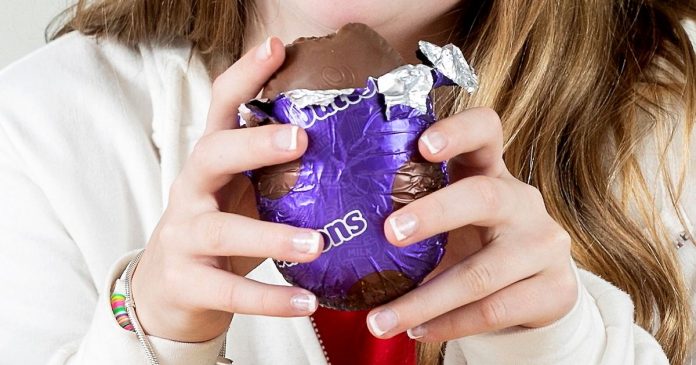A staggering 123 million Easter eggs are expected to be consumed across the UK this year, according to new research. A survey of 2,000 adults revealed that, from the age of 18, Brits eat an average of 165 chocolate Easter eggs over their lifetime. On average, adults receive three Easter eggs each year, with around five million of them being eaten even before Easter Sunday.
Nearly two in five respondents admitted that Easter is one of their favourite holidays purely because of the chocolate. However, the study also highlights a hidden concern behind this annual tradition: the environmental impact of Easter egg packaging.
Over two-thirds of those surveyed believe the eggs they receive are excessively packaged, and many still struggle to recycle the materials effectively. Alarmingly, one in five admitted they do not recycle the plastic boxes the eggs come in, while 36% said they dispose of the foil wrapping as general waste.
The research was commissioned by global packaging firm DS Smith who has developed a tool to help Brits calculate how many Easter eggs they’re likely to eat over their lifetime. It will then show the estimated amount of packaging produced and based on personal habits, how much of it will realistically be recycled.
Samantha Upham, senior sustainability manager at DS Smith, remarked: “Chocolate eggs are a lovely part of Easter. While most of these eggs will be devoured on the day, the packaging they come in can have a much longer life cycle.
“Decades of progress have had a huge impact on the amount we recycle, with paper and card the most widely recycled materials in the UK. But too much of it is still ending up in landfill and we need to challenge ourselves to do better.”
The recent study has highlighted the struggles some Brits face when trying to recycle Easter egg packaging. Of those who don’t usually recycle these materials, 26% claimed that unclear recycling instructions on the labels are the main obstacle.
Furthermore, 36% reported that certain materials, such as specific plastics, are not accepted for recycling in their local areas.
However, 26% voiced frustration over the waste produced, and 22% revealed they select their Easter eggs based on whether the packaging is fully recyclable.
Samantha Upham provided advice on how to indulge in Easter treats while being conscious of the environment: “It’s lovely to enjoy Easter treats, but the environment doesn’t need to pay the price.
“Confectionery companies have come a long way to remove unnecessary packaging and make the remaining wrapping recyclable.
“Simply separating card, plastic and foil after your Easter feast means materials have the best chance of being recycled rather than being sent to landfill.
“If you’re not certain what goes into which bin, check out your local recycling rules.”
At Reach and across our entities we and our partners use information collected through cookies and other identifiers from your device to improve experience on our site, analyse how it is used and to show personalised advertising. You can opt out of the sale or sharing of your data, at any time clicking the “Do Not Sell or Share my Data” button at the bottom of the webpage. Please note that your preferences are browser specific. Use of our website and any of our services represents your acceptance of the use of cookies and consent to the practices described in our Privacy Notice and Cookie Notice.


